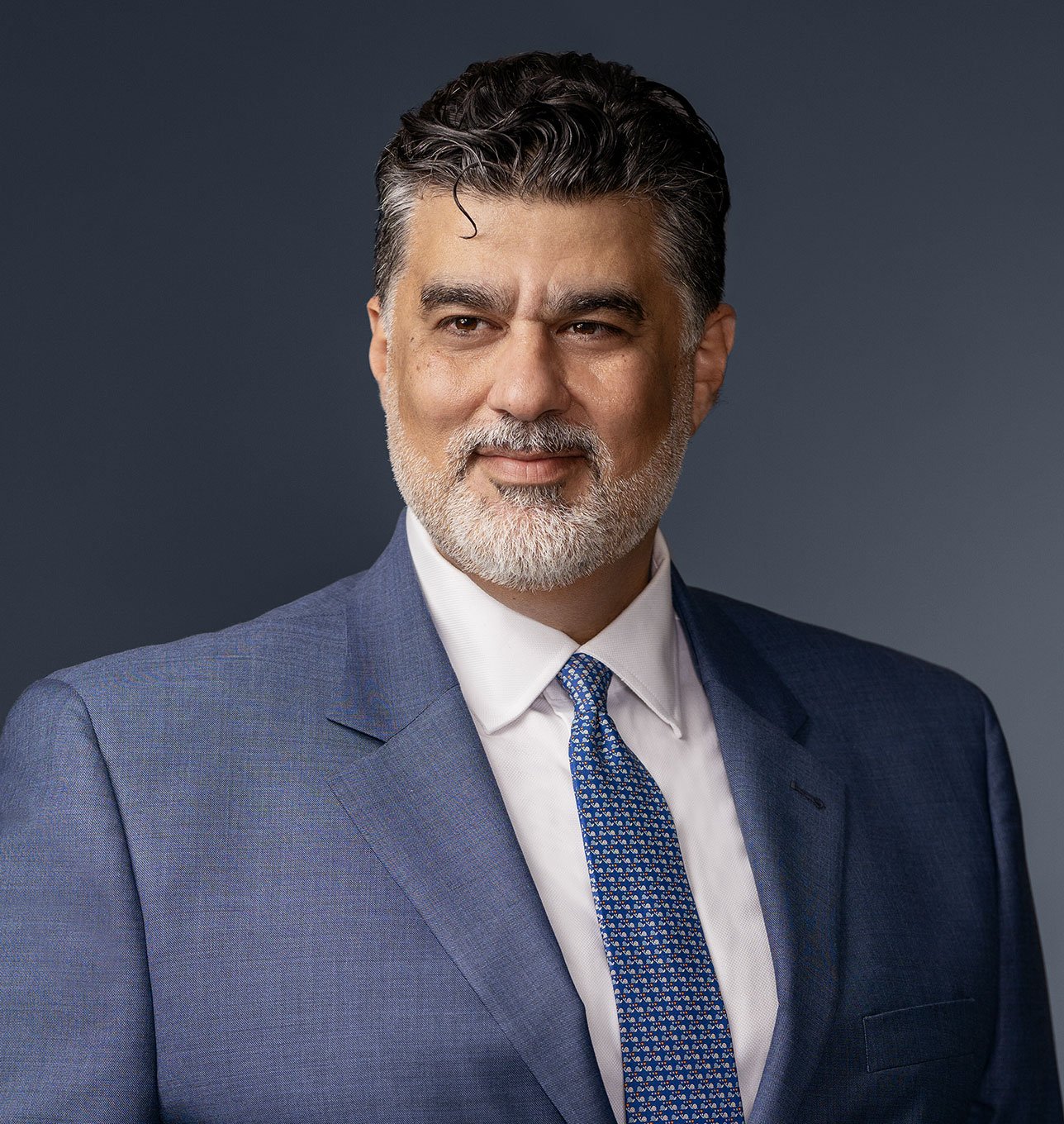août 29 2025
Russia/Ukraine Sanctions Update - Month of August 2025
US Sanctions | EU Sanctions | UK Sanctions | Russia/Ukraine Sanctions | Other Notable Developments
I. U.S. Sanctions
- U.S. Department of the Treasury Sanctions Russian Cryptocurrency Exchange: On August 14, the U.S. Department of the Treasury’s Office of Foreign Assets Control (“OFAC”) re-designated the cryptocurrency exchange, Garantex Europe OU (“Garantex”), determined to have directly facilitated notorious ransomware actors and other cybercriminals by processing over $100 million in transactions linked to illicit activities, since 2019. OFAC is also designated Garantex’s successor, Grinex, and acted against three executives of Garantex and six associated companies in Russia and the Kyrgyz Republic alleged to have supported the exchange’s involvement in malicious cyber activities. Read more >>
- President Trump Continues to Weigh “Very Serious” Economic Sanctions on Russia: According to Reuters, on August 26, President Trump stated that “he is prepared to impose economic sanctions against Russia if its president, Vladimir Putin, fails to agree to a ceasefire in the war in Ukraine.” Read more >>
- President Trump Holds Meeting with Ukrainian President Zelensky and other European Leaders: On August 18, President Trump announced he arranged a bilateral meeting between Ukrainian President Volodymyr Zelenskyy and key European leaders. During the meeting, President Trump emphasized his “commitment to stopping the bloodshed and securing lasting peace, rallying European allies to lead on security and paving the way for an ultimate resolution to the war.” Read more >>
- President Trump Hails Alaska Summit with Russian President Putin as “Productive”: According to Reuters, on August 16, President Trump welcomed President Putin for a summit in Alaska. However, the meeting ended without an agreement to end Moscow’s war against Ukraine. That said, President Trump told reporters “[w]e really made some great progress today” and “[t]here’s no deal until there’s a deal.” Read more >>
- U.S. State Department Offers Reward for Information Leading to Arrest of Russian Leaders of Garantex: On August 14, the U.S. Department of State’s Transnational Organized Crime Rewards Program offered two rewards totaling up to $6 million for information leading to the arrests and/or convictions of leaders of Garantex, discussed above, including up to $5 million for Russian national Aleksandr Mira Serda, a/k/a “Aleksandr Ntifo-Siaw,” and up to $1 million for other key leaders of Garantex. Read more >>
- U.S. Secretary of State Speaks with Russian Foreign Minister: On August 12, U.S. Secretary of State, Marco Rubio, spoke with Russia’s Foreign Minister, Sergey Lavrov, “regarding the preparation for the upcoming summit between President Donald J. Trump and Russian President Vladimir Putin.” Read more >>
II. EU Sanctions
- EU Commission Updates its Guidance on Sanctions Against Russia and Belarus: In early August, the European Commission updated its guidance on the interpretation of the exception to the prohibition on exporting banknotes denominated in any official currency of a Member State to Russia, as well as on import-control measures concerning Russian diamonds. Read more >> and Read more >>
- EU's General Court Dismisses Action Against EU Sanctions Brought by Mr. and Ms. Timchenko: By its judgments delivered on August 1, the General Court dismissed the actions brought by Mr. Gennady Timchenko and Ms. Elena Timchenko challenging their listings. Read more >> and Read more >>
- EU Commission Clarification on Sanctions Against Rosatom and its Subsidiary Atomflot: On August 26, the European Commission explained that the EU has implemented strict export control measures curbing Russia’s access to goods and technology that might contribute to Russia’s military and technological enhancement or its industrial capacities. The European Commission indicated that, in the nuclear sector, comprehensive export control restrictions limit Russia’s access to nuclear-related goods and technology, including those used by Rosatom and Atomflot. More specifically, the EU has imposed targeted export restrictions against Atomflot due to its involvement in the Russian military-industrial complex. The European Commission is committed to gradually phasing out Russian nuclear imports to maintain energy security, but any new sanctions require unanimous agreement among all Member States. Read more >> and Read more >>
- EU’s Next Package of Sanctions Against Russia to be Unveiled in September: On August 17, European Commission President Ursula von der Leyen confirmed that the EU’s 19th package of sanctions against Russia will be presented in early September. While new energy measures remain improbable under the EU Member States’ unanimity rule, the EU plans tighter sanctions enforcement, including curbs on Russia’s so-called “shadow fleet” used to skirt the oil price cap. The forthcoming package is expected to add more individuals and companies to the sanctions list and introduce targeted export restrictions on advanced technologies for entities proven to facilitate circumvention. Read more >> and Read more >>
- EU Considers Sanctions on China Over Covert Drone Supply to Russia: The EU is reportedly preparing to impose sanctions on China after investigations revealed that Chinese-made drone engines were covertly supplied to Russia for use in the war against Ukraine, with shipments disguised as industrial refrigeration units to evade sanctions. Fifteen EU Member States have already confronted Beijing about the shipments, but China has either denied involvement or refused to respond.
Read more >> - Russia Said to Circumvent Sanctions Through Chinese Marketplaces: Russia is said to continue to acquire, dual-use machinery for its defense industry by exploiting Chinese e-commerce platforms like Alibaba and AliExpress, with Chinese firms openly supplying advanced machine tools. These transactions often circumvent export controls through intermediary countries and shell companies. Read more >>
III. UK Sanctions
- UK Government adds eight entries to the UK sanctions list under the Russia sanctions regime: On August 20, the UK Government designated five entities, Grinex LLC, CJSC Tengricoin, Old Vector LLC, OJSC Capital Bank of Central Asia and Altair Holding SA, and three individuals, Leonid Shumakov, Zhanyshbek Uulu Nazarbek, Kantemir Kaparbekovich Chalbayev, under the Russia sanctions regime. According to the UK Government, these measures aim to crack down on Russia’ attempts to avoid sanctions by exploiting Kyrgyz financial systems and crypto networks. Read more >> and Read more >>
- OFSI adds three FAQs relating to its Brokerage General Licence: On August 19, OFSI added FAQs 162, 163 and 164 to its financial sanctions FAQs page to address questions around the use of licence INT/2025/6641960, which relates to non-designated persons who have made investments through designated brokers transferring their funds to a non-designated broker. Among other things, the new FAQs state that assets held in, by, or via the National Settlement Depository (“NSD”) are not covered by the Brokerage General Licence and that OFSI has not changed its policy towards the NSD. Read more >>
- UK Government extends Mongolian Energy Payments General Licence: On August 7, OFSI extended General Licence INT/2022/2085212, which authorises payments to four Russian banks or their subsidiaries for the purpose of making energy available for use in Mongolia, subject to certain terms and conditions. The General Licence has been extended to August 14, 2027. Read more >>
- UK Government updates Countering Russian Sanctions Evasion guidance to businesses on higher risk goods: On August 4, the UK government updated its guidance for UK exporters on countering Russian sanctions evasion and circumvention. Among other things, the guidance identifies goods on the common high priority list and goods at higher risk of circumvention, and states that businesses should consider conducting enhanced due diligence on customers based within inter alia Armenia, China, India, Kazakhstan, Kyrgyzstan, Malaysia, Serbia, Thailand, Türkiye, UAE, Uzbekistan and Vietnam. Read more >>
- OFSI issues £300k monetary penalty for UK sanctions breaches: On July 31, OFSI announced that it had issued a £300,000 penalty against Markom Management Limited (“MML”) for its instruction of a £416,590.92 payment on February 20, 2018, from another company’s bank account with the knowledge that the recipient was a designated person, having failed to put in place adequate compliance and controls procedures. OFSI outlines some key lessons for industry, including that all firms, regardless of their size, should take appropriate steps to understand and address their exposure to sanctions risks; have adequate sanctions processes to ensure compliance including to promptly identify as well as report suspected breaches of financial sanctions to OFSI; and be alert to the risks of making payments in haste. Read more >> and Read more >>
- EuroChem loses EUR 212 million High Court case against SocGen and ING: On July 31, the UK High Court dismissed a claim by EuroChem against SocGen and ING for receipt of certain bond payments. In dismissing the claim, Bright J found that Andrey Melnichenko, a UK assets freeze target, held ‘de facto control” of the EuroChem entity that would benefit from the bonds. Read more >>
- UK government amends one entry on the UK sanctions list under the Russia regime: On July 31, the UK government amended the entry for Petr Aven on the UK sanctions list under the Russia regime. Read more >>
- UK High Court provides clarity on the meaning of “reasonable cause to suspect” in Tonzip Maritime Ltd v 2Rivers PTE Ltd: On July 31, the UK High Court found in Tonzip Maritime Ltd v 2Rivers PTE Ltd that a shipowner’s decision to refuse their charterers' orders to load a cargo, on the basis that doing so would expose them to sanctions, was not a decision that a reasonable shipowner could reasonably have come to. In particular, the court determined that the shipowner’s reliance on a Refinitiv report indicating the shipper’s indirect and previous association with a sanctioned individual was not a reasonable basis for terminating the contract.
Read more >> - UK Supreme Court dismisses Shvidler and Dalston Projects de-listing appeals: On July 29, the UK Supreme Court dismissed appeals by Eugene Shvidler and Dalston Projects Ltd against sanctions imposed against them. The Court agreed that the sanctions had interfered with the appellants’ private lives under Article 8 of the ECHR, but rejects that those interferences were disproportionate and unlawful.
Read more >>
IV. Russia/Ukraine Sanctions
- Ukraine imposes sanctions on 74 individuals and 65 entities: On August 23, President Zelenskyy passed Decree No. 612/2025 and Decree No. 613/2025 which imposed sanctions against 139 individuals and entities involved in the Russian war machine. The designated individuals include those personally involved with President Putin, including his ex-wife Lyudmila Ocheretna and her husband Artur Ocheretny. The designated entities include VG Invest and Unipro. (Written in Ukrainian) Read more >> and (Written in Ukrainian) Read more >>
- Russia imposes sanctions against 21 individuals related to the British media: On August 20, Russia designated several British nationals and third-country nationals who it described as “collaborating with destructive British media and consulting agencies”. The designations include reporters and columnists from the Guardian, the Times and the Daily Telegraph. (Disclaimer: This site may be inaccessible due to security settings implemented by you or your Firm.) Read more >>
- Ukraine imposes sanctions on developers of UAVs: On August 16, President Zelenskyy passed Decree No. 599/2025 and Decree No. 600/2025. Decree No. 599/600 concerns the introduction of sanctions against the Russian military-industrial complex and designates 39 individuals and 55 companies. Decree No. 600/2025 concerns vessels and aircraft. (Written in Ukrainian) Read more >> and (Written in Ukrainian) Read more >>
- Ukraine imposes sanctions on 351 individuals and entities: On August 8, President Zelenskyy passed Decree No. 594/2025 and Decree No. 595/2025. Degree No. 594/2025 applies several different types of sanctions to 28 individuals and 288 entities to synchronise sanctions with Western partners. Degree No. 595/2025 applies sanctions to 18 individuals and 17 entities connected to Russia’s state nuclear corporation Rosatom and other Russian energy companies. (Written in Ukrainian) Read more >> and (Written in Ukrainian) Read more >>
- Ukraine imposes sanctions on individuals and entities connected to misappropriation of cultural property: On August 3, President Zelenskyy passed Decree No. 578/2025, Decree No. 579/2025 and Decree No. 580/2025. The Decrees impose sanctions on persons involved in the illegal export of resources and cultural property from the temporarily occupied territories. Decree No. 578/2025 imposes personal sanctions on 94 individuals and five entities. Decree No. 579/2025 introduces restrictions on 62 individuals and entities and covers the package of Asset Abductors from the temporarily occupied territories. Decree No. 580/2025, targets 15 people involved in the misappropriation of Ukrainian cultural property and attempts to integrate occupied museums into the Russian system. (Written in Ukrainian) Read more >>, (Written in Ukrainian) Read more >> and (Written in Ukrainian) Read more >>
V. other notable developments
- Switzerland Adopts New Sanctions Measures on Russia: On August 12, Switzerland announced the extension of its sanctions against Russia by adopting new measures as part of the EU’s 18th sanctions package. The measures include asset freeze and entry bans for 14 individuals and 41 entities linked to Russia’s military industrial complex, including companies involved in managing shadow fleet vessels and trading Russian crude oil. Read more >>









